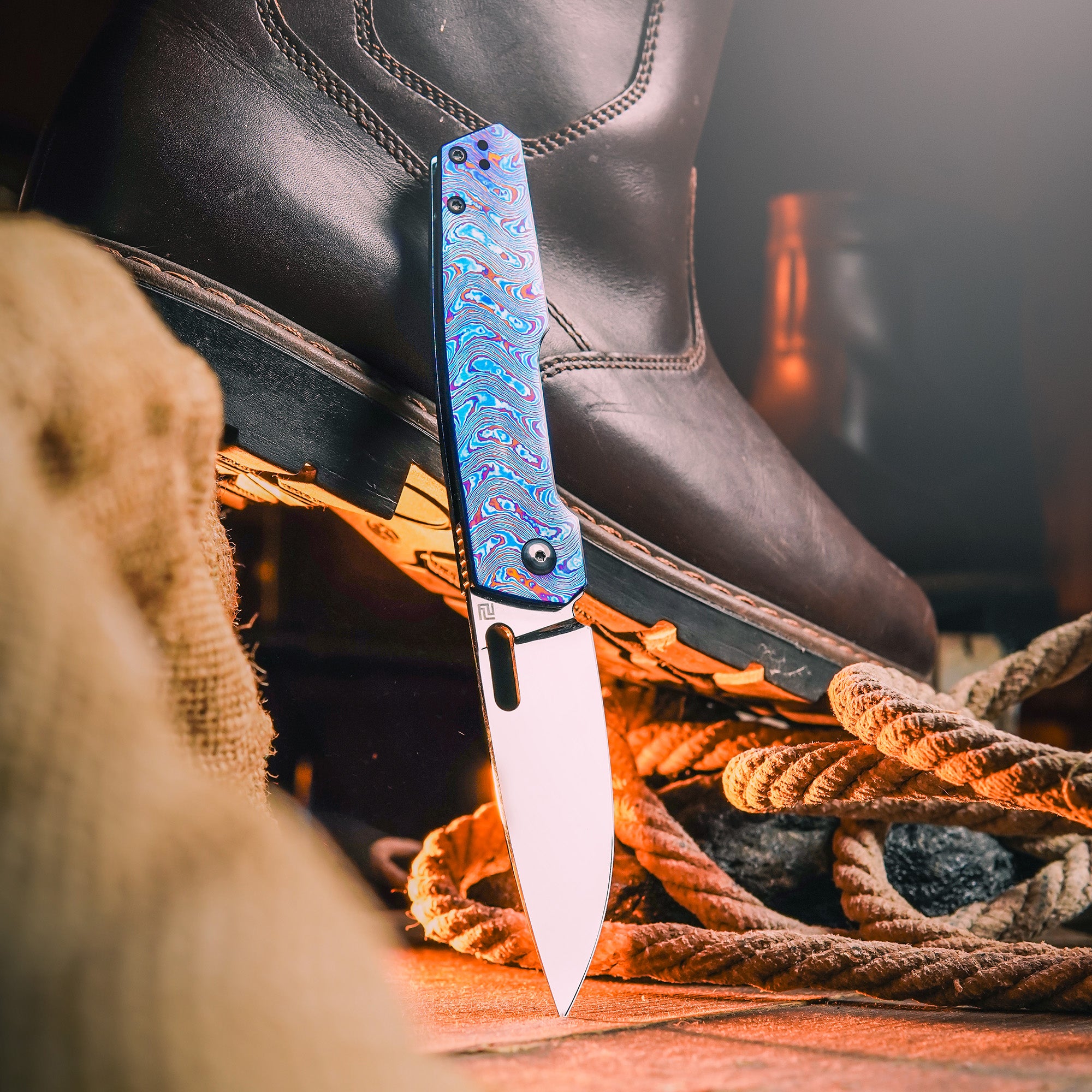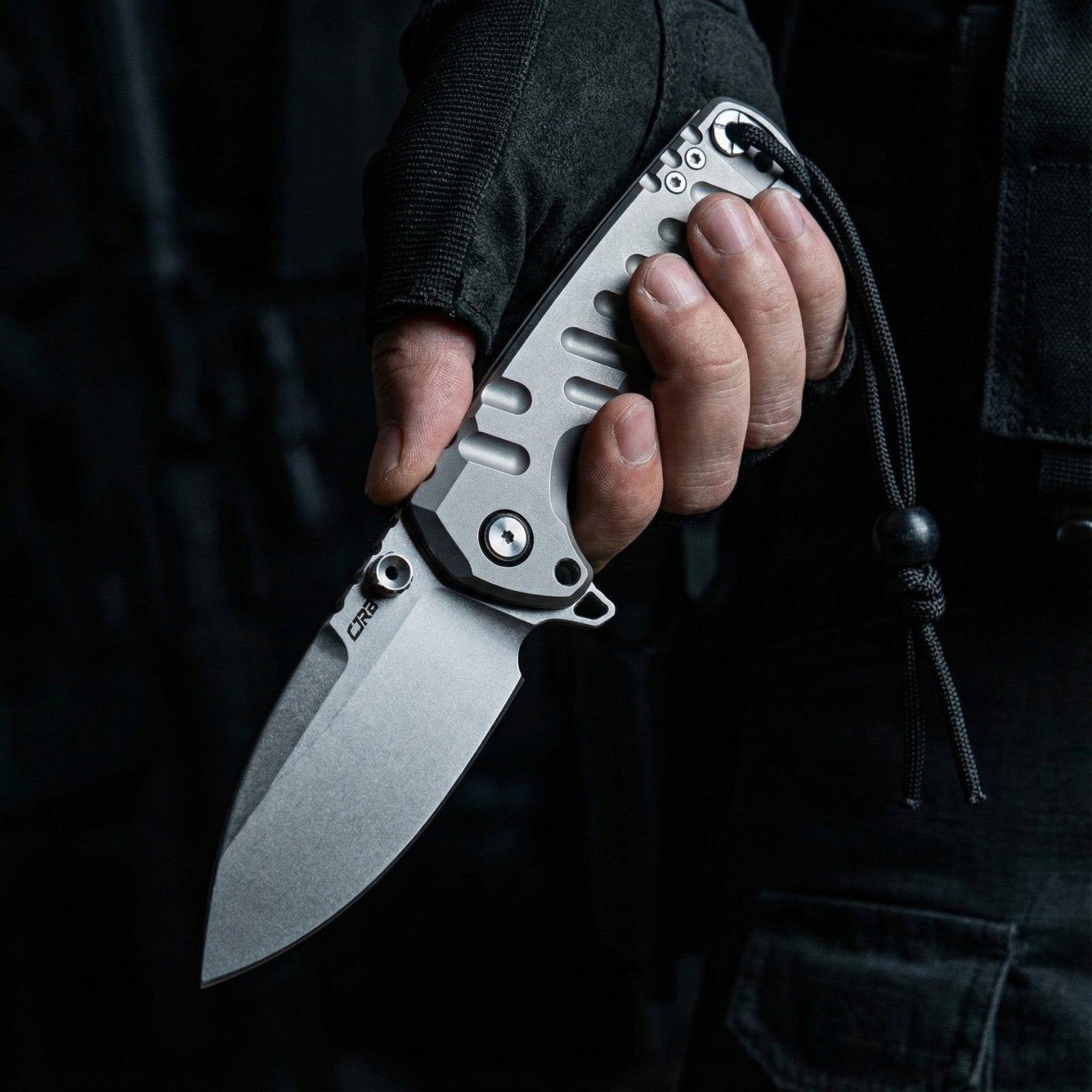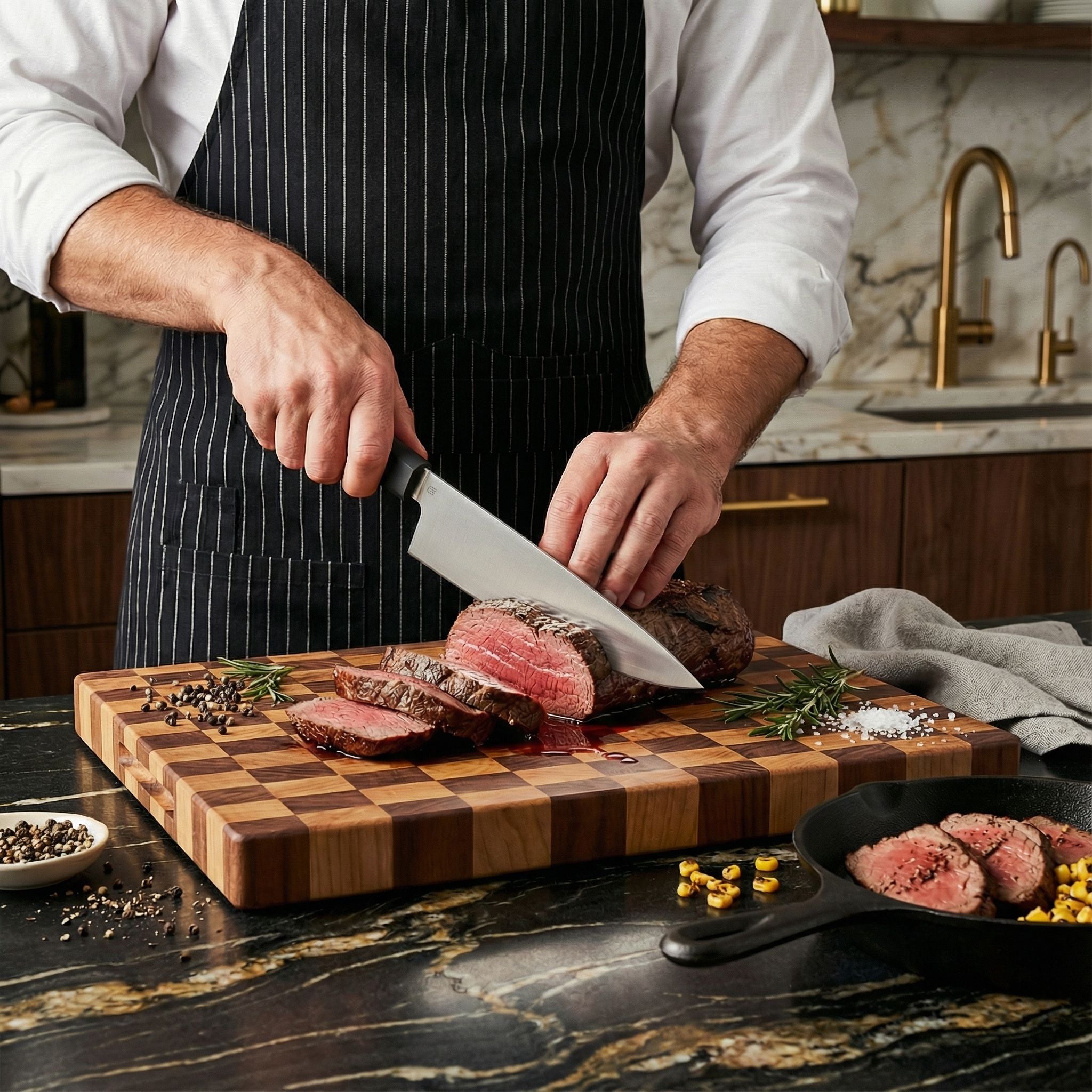Folding knives feature a pivoting design that allows the blade to fold into the handle. This makes them highly portable and safe to carry in a pocket or bag. However, this pivoting mechanism also introduces more potential points of failure compared to fixed-blade knives. Reasons why a folding knife may fail to close properly include an accumulation of dirt and debris, misalignment of components, and damaged parts.
While frustrating, a folding knife that won't close can often be fixed with some basic cleaning, adjustment, and inspection. Being able to properly maintain your EDC folding knife will save you time and money on professional repairs. It also ensures you can rely on your knife working properly when you need it. In this guide, we'll cover the key things you need to know to troubleshoot and fix a folding knife that refuses to close correctly.
What Are the Main Parts of a Folding Knife?
The key components of folding knives are the blade, handle, liners, pivot pins, locking mechanism, and pivot screws. The blade folds into the handle and is connected via pivot pins to liners that line the handle interior. Locking mechanisms keep the blade safely open. Pivot screws adjust the tension and alignment of the folding mechanism. Understanding how these parts interact facilitates troubleshooting issues with operation.
Why Won't My Folding Knife Close?
When a folding knife does not fully close as intended, there are several common underlying causes to investigate:
Dirt and Debris Accumulation
Over time, various dirt and debris can accumulate in the inner workings of a folding knife. Things like dust, sand particles, food fragments, and general pocket lint and grime can clump up and interfere with smooth mechanical operation.
Specifically, debris buildup near pivot joints, in liner crevices, and around the locking mechanism often prevents the blade from closing correctly. Frequently disassembling and cleaning your knife prevents problematic buildup.
Misalignment of Components
For smooth folding action, a knife's components must remain precisely aligned. However, regular use over extended periods can cause parts to slip out of alignment. Issues like a bent pivot pin, laterally shifted liner, or skewed locking bar can prevent proper blade closure.
Locking mechanisms are particularly prone to misalignment problems. A warped or shifted lock face will not allow the blade to fully seat into the closed position. The tension on springs and moving parts also naturally decreases over time.
Damaged Components
Continuous use subjects folding knife components to repetitive mechanical stress that eventually takes a toll. Pivot joints, locking springs, and handle scales/liners will eventually crack, chip, or wear down with prolonged use. Issues like a deformed liner, worn pivot washers, and broken lock springs can directly prevent smooth closing.
Blade tips are also prone to chips and cracks that cause protrusions, preventing full closure. Poor quality materials, manufacturing flaws, and excessive impacts accelerate component damage.
Understanding these common failure points aids in troubleshooting and prevention of folding knives that won't close properly when needed.

How Can I Troubleshoot a Folding Knife That Won't Close?
Implementing some basic maintenance practices can keep your folding knife functioning smoothly for many years and prevent common issues:
Regular Cleaning
One of the most important things you can do is regularly disassemble, clean, and lubricate your knife. The buildup of pocket lint, dirt, and debris is a prime culprit behind folding knives failing to operate properly. Get into the habit of periodically taking your knife apart to clean all components. Use compressed air to dislodge debris and cleaning solvents like isopropyl alcohol to remove grime. Re-lubricate pivot joints with lightweight oil. Frequent detailed cleanings nip issues in the bud.
Proper Storage
How and where you store a folding knife also affects its longevity. Keep knives in a dry, stable environment away from excess moisture, humidity, and dramatic temperature swings that can warp parts. Avoid storing knives with tension on the lock bar, as this weakens springs over prolonged periods. Use protective storage cases, sheaths, or displays to prevent inadvertent damage. Proper storage prolongs life.
Routine Inspection
Visually inspect your folding knife on a regular basis for any signs of wear, misalignment, or damage. Check pivot tension, blade centering, lock engagement, and overall smooth mechanical operation. Closely examining components under bright light helps spot issues in the early stages when they are quicker and easier to address. Early diagnosis and repair prevent small problems from becoming severe.
Use Quality Products
Invest in reputable knife brands that use durable, high-performance materials and precision manufacturing. Quality craftsmanship translates into components that better withstand heavy use and last longer through years of service. Cheap knives often have soft, imprecise parts that are prone to premature wear, warping, and breakage. Pay for quality.
Make these simple folding knife maintenance practices a habit, and your blade will provide reliable performance for the long haul. But professional help is needed at times...
When Should I Seek Professional Help for My Folding Knife?
While basic at-home care and troubleshooting can fix many issues, certain problems require professional repair services:
- Inability to close after thorough cleaning/adjustment
- Visible cracks, chips, or deformation of key components
- Broken or malfunctioning locking mechanism
- Misalignments not fixed by pivot adjustments
- Loose, damaged, or worn pivot joints/pins
- Warped or bent blades, handles, liners
For anything beyond minor cleaning and tensioning, it's best to seek out knowledgeable knife makers, specialty cutlery retailers, and custom craftsmen to properly return your knife to optimal function. Their expertise ensures repairs are completed fully and correctly.
Conclusion
Troubleshooting a folding knife that won't close properly is frustrating but usually fixable with some basic maintenance. Try cleaning, pivot tensioning, and inspection yourself first before taking it to professionals. Prevent issues in the first place by keeping your knife clean, stored properly, and routinely checked. Implement these folding knife maintenance tips, and you'll keep your EDC knife working reliably for years on end.










Leave a comment
All comments are moderated before being published.
This site is protected by hCaptcha and the hCaptcha Privacy Policy and Terms of Service apply.